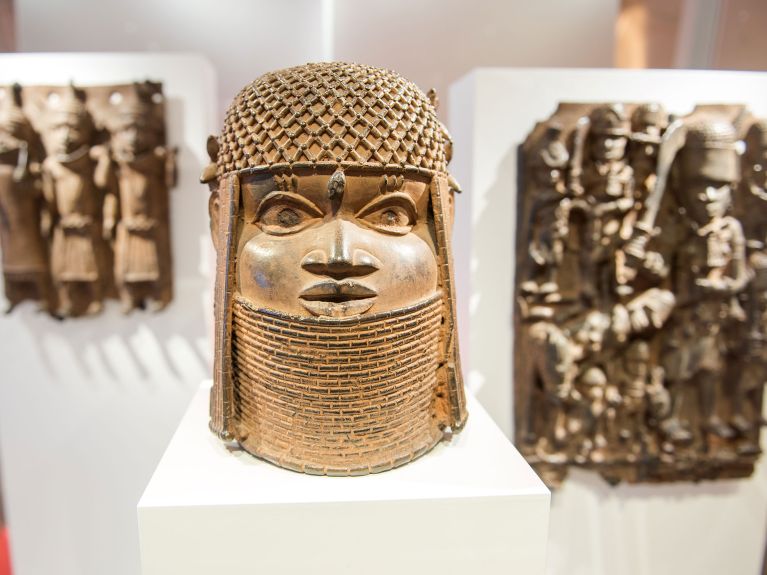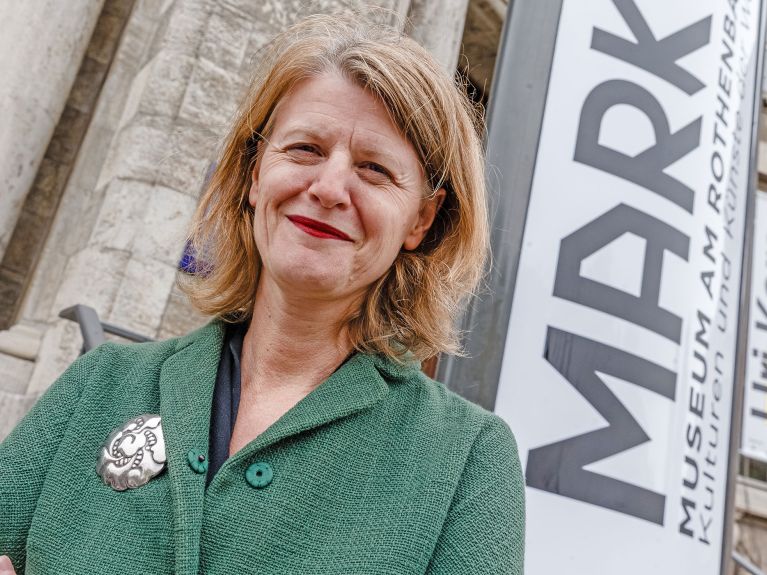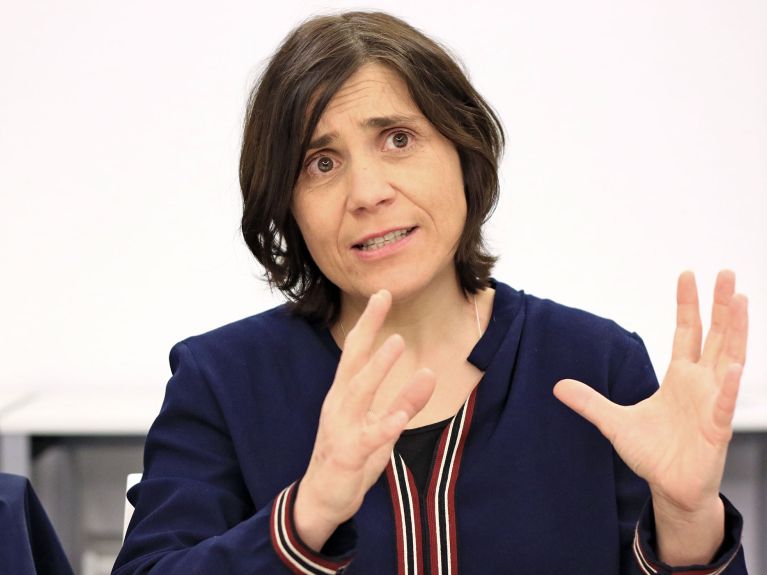“Restitution is a new beginning”
In 2022, the first Benin Bronzes are set to return to Nigeria. Two experts explain.

In the former Royal Palace of the Kingdom of Benin – now part of Nigeria – there were countless sculptures and metal reliefs dating from the 16th to 18th century, the so-called Benin Bronzes. Many of these objects were stolen from Benin City at the end of the 19th century and found their way into European museums. At present, the Nigerian Federal government is requesting they be returned. In Germany, there are some 1,000 items in museums in Hamburg, Stuttgart, Leipzig, and Cologne. And there is a plan to exhibit them in the newly-opened Humboldt-Forum.
Summit meeting on restitution
At the invitation of Minister of State for Culture Monika Grütters at the end of April 2021, the German Federal Foreign Office, the ministers of culture of the federal states, and the German museums who are members of the Benin Dialogue Group agreed at a virtual meeting on a joint schedule with the overall goal of returning the artworks to Benin City. The Benin Dialogue Group is a coalition of international museums in which Benin Bronzes are on show, set up to drive dialogue with the partners on the Nigerian end. Federal Foreign Minister Heiko Maas commented on the summit on the Benin Bronzes: “It marks a turning point in our colonial history that we have been able to agree a schedule for the restitution of the objects with the museums and their patrons.
We asked two experts for their respective assessment of the debate on the return of the Benin Bronzes:
“A new museum in Benin City”

“The focus now must be on intensifying discussions with Nigeria to enable the first items to be returned in 2022 – that is our shared goal. At the same time, the Benin Dialogue Group, which is made up of international museums and experts, remains a crucial communication platform, for example for interaction on the development of the basic framework in the various European countries and for mutual support. Together with our Nigerian partners, we wish to support the planned Edo Museum of West African Art EMOWAA in Benin City from various perspectives and in line with the capacities of the individual museums concerned. With this setup, the Nigerian decisionmakers have an ideal opportunity to address the most important museums with collections and nurture contacts with them.
It is key that the museum project in Benin City materializes. A major role is played here by the Digital Benin Project. There has long been the wish on the part of our Nigerian partners that knowledge on the distribution of these art treasures around the world be bundled – including the historical photographs and documents on the Benin Bronzes. The online platform is destined to enable this. It will likewise be an important medium for scholars and researchers, for museums the world over and for knowledge transfer, and it will in future be hosted by the EMOWAA.”
“I consider it a new beginning”

“The current debate on the restitution of the Benin Bronzes is long since overdue and is to be welcomed. Essentially, the issue is that of the late consequences of failed decolonization. As a rule, the relocation of cultural assets in times of asymmetrical power relationships tends to be resolved at the end of that asymmetrical power relationship. However, when in the 1960s many of the former colonies of European countries gained their independence, there was no mention of how cultural assets should be treated. In Germany, which had lost its colonies at an earlier date, things were essentially similar. More than 50 years ago the Nigerian government requested the restitution of cultural assets, but nothing happened. In other words, cultural assets in Europe are residues of a negotiation that never took place over that separation. To my mind, it is very, very important that we adults today address this topic now and ensure that actions are taken, and that we do not leave it to our children, the way the players in the 1970s left the problems to us to resolve. We now have the responsibility to find a good solution and I consider the current efforts as a new beginning.”


